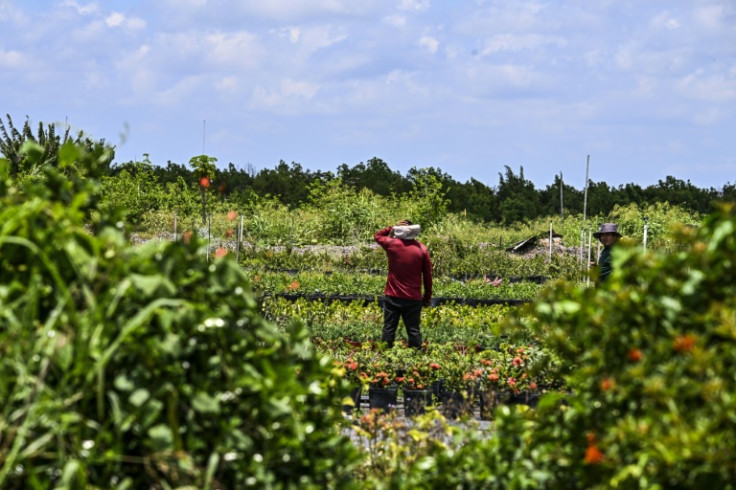
As the presidential election approaches, immigration has emerged as a contentious issue, igniting fear and frustration among voters. Nevada, a pivotal swing state, exemplifies the complex realities behind the immigration debate. While cities nationwide have grappled with an influx of illegal crossings — putting strain on resources, even in Democratic strongholds — the state's economy benefits significantly from immigrant labor.
Former President Donald Trump advocates for stringent measures, including mass deportations, while Vice President Kamala Harris proposes pathways to citizenship alongside increased border security and stricter asylum rules.
Both parties express support for expanding guest worker programs in agriculture. During the Trump administration, farmworkers were deemed essential amid the pandemic, leading to a rise in program participation. However, Trump's proposed rule to freeze their wages for two years and loosen housing requirements drew criticism. The Biden administration subsequently reversed these measures, issuing over 310,000 H-2A visas in fiscal year 2023 compared to about 213,000 in 2020.
Nevertheless, new regulations aimed at protecting workers have also sparked frustration among some employers, as reported by the AP. At the Baker Ranch, located about 300 miles south in Las Vegas, immigrants remain crucial to keeping the state's 24-hour economy running smoothly.
Long-term immigrants in the U.S. argue that the immigration debate has been reduced to oversimplified solutions from both political parties. With nearly 19% of Nevada's population being foreign-born, and about 9% of its workforce lacking legal status, experts warn that losing these workers could result in job losses comparable to the 2008 financial crisis. Peter Guzman, president of the Latin Chamber of Commerce, emphasized that the state's hotels and casinos rely heavily on immigrant labor.
Despite Nevada's relatively small number of electoral votes, its unique demographic makeup could sway the election. Las Vegas, home to many hospitality workers, plays a crucial role, and the diverse views in Clark County make the state's electoral outcome particularly unpredictable.
The Pew Research Center estimates that 11 million undocumented people live in the U.S. Although states like California, Texas, and Florida have larger immigrant populations, they are solidly red or blue in presidential elections and unlikely to sway the outcome, unlike Nevada, a battleground state.
The Latino Donor Collaborative and Wells Fargo published last month a study revealing that Latinos contributed $3.6 trillion to the U.S. economy in 2020, hypothetically positioning them as the fifth-largest economy in the world, surpassing France, United Kingdom, and Canada. Manufacturing alone accounted for $457.4 billion, marking an impressive 48.4% growth from the previous year. Another report highlighted that Latinas contributed $1.3 trillion to the economy in 2021, surpassing Non-Latina women in workforce participation and emphasizing their growing presence across various industries.
Together, these studies illustrate the essential role of immigrant workers in U.S. economic expansion. A new report from the National Foundation for American Policy further underscores this importance, projecting that by 2052, the labor force among U.S.-born workers will peak at 146.7 million, with future labor growth reliant exclusively on immigrants.
As immigrant workers continue to drive economic growth, their political influence is also becoming increasingly significant, particularly in swing states like Nevada. The state has seen a dramatic 724% increase in Spanish-speaking ads since the 2020 elections, with 25% of presidential election ads now airing on Spanish-language outlets, as reported by Bloomberg.
This surge comes in the wake of President Biden's narrow victory over Trump in Nevada, where Latino outreach efforts are becoming more pronounced. A recent poll from the Hispanic Federation and Latino Victory Foundation found that 64% of Latinos reported being contacted by campaigns or get-out-the-vote organizations, a notable rise from early September when half had not received any outreach. The number is especially meaningful considering that as recently as early September, 1 in 2 Latinos had not been contacted by either political party.
© 2025 Latin Times. All rights reserved. Do not reproduce without permission.


